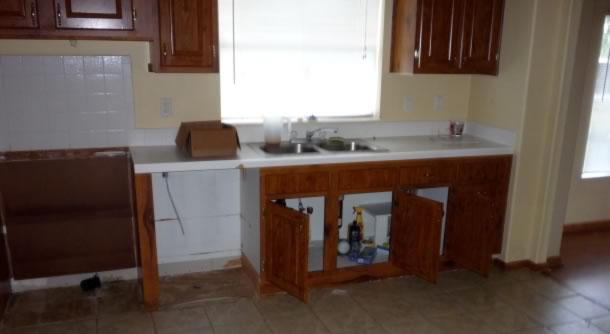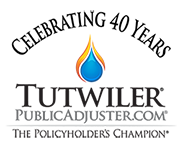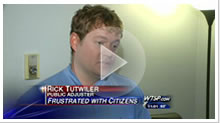In many cases, the company will inspect your property, review the police report, take your recorded statement then make a determination on coverage after receiving your inventory list of stolen property. In larger dollar cases, a more thorough investigation by the company may take place which may include an examination under oath and request for financial documentation to prove fiscal status (ability to own). With no physical evidence of ownership, it gets down to the policyholders credibility which the company attempts to obtain through the EUO and financial documentation. We have also seen affidavits used to support the fact that the policyholder filing the affidavit swears an acquaintance can confirm they had whatever property is disputed in the claim. Family and friends can help, but remember, these are sworn statements under oath. So telling the truth is the rule when filing an affidavit. You may want to consult with an attorney on this issue before submitting an affidavit.

This company was very helpful in a distressed situation that I was in. Extremely nice and willing to help me in my situation with a very bad insurance company I’m dealing with.
– Homeowner
Understanding Theft & Vandalism Losses
Typical questions posed by insurance companies after receiving notice of a theft/vandalism claim are: Did a theft/vandalism actually occur? Did the policyholder actually own or possess the items being claimed stolen, and if so, can proof be provided? What is the value of the item or items being claimed? Was there any related property damage such as broken windows, doors, locks, or equipment related to the theft or vandalism?
With respect to the theft/vandalism event, most are substantiated and supported by official police reports which document the actual event. These reports are used by insurance companies to verify an event happened and also to assist them in future subrogation avenues it may pursue. It is absolutely critical that a police report be filed in claims involving theft and/or vandalism. You should make sure the police report and the report of items being claimed is accurate as to the list of items stolen. Should you discover additional items later be sure to update the police report and tell the insurance company you have filed a supplemental police report.
With respect to ownership and value, insurance companies rely heavily on documentation provided by the policyholder to prove ownership and substantiate value. This documentation could take the form of video, pictures, receipts, credit card statements, appraisals, insurance policy endorsements, etc. Try to provide as much documentation as possible to help substantiate the claim for theft with your insurance company.
In the event no title or ownership documentation can be provided; in the case of larger losses, most insurance companies will invoke their right to an examination of the insured under oath also called EUO. In addition to EUOs, the company may also request financial documentation from the insured to establish a basis of ownership and in some cases, tax returns and support showing a person had the income and lifestyle for the items they claimed were stolen.
In addition to ownership and measurement of loss issues, a very detailed review and evaluation of the insurance policy must be completed. Most policies contain limits or exclusions for certain scope items related to theft/vandalism claims and in many cases, certain items must be scheduled in a policy in order for coverage or higher limits to apply. Often this can be accomplished by what is called an inland marine floater insurance policy. Third party appraisals will be required to schedule items and a limit will be set as to the maximum amount you will be paid in the event of a theft.
A problem we have seen over the years following a loss for an item on a schedule is that the insured will assume they will be paid the dollar limit on the schedule as it was based on an appraisal. This is always true, as an insurance company will often go out in the market and seek a price from companies that have buying power to reduce the estimated replacement price, particularly on jewelry. They will then offer you the money based on lower price or offer to buy it for you. This is true despite the appraisal you had that they accepted and charged you a premium on. Also, appraisals can vary greatly in opinion of a value. So you may want to ask the insurance carrier to give you the name of the company they use or will use if a loss occurs and go to that firm to get your appraisal for the scheduled items.
Although theft/vandalism claims are very common, they can be some of the most complicated and time consuming matters to resolve. Let Tutwiler & Associates guide you through the process.
If you would like help with your theft or vandalism insurance claim and understand your options, give us a call at 813-412-8357 or contact us.
FAQs About Theft/Vandalism
Technically, no. However, in every case where an EUO is requested, careful consideration on whether to hire an attorney should be given. We do suggest you talk with an attorney to obtain an opinion given the facts in dispute as to whether they should sit with you at your EUO. The more complicated the issues, the more likely it would benefit you to have legal counsel during an EUO. In larger dollar cases it may also be wise. A EUO is a sworn statement that generally is taken by a lawyer hired by your insurance company.
An attorney would need to be retained and most likely a lawsuit filed against your insurance carrier. However, in some cases, Tutwiler & Associates can review your claim and may be able to get your company to reconsider coverage before taking this step. In the event an attorney is required, Tutwiler & Associates can act as your expert with regards to the insurance loss and damages.
If requested, under the terms of most insurance policies, you must submit a completed and executed Proof of Loss form within the required period of time. Failure to comply could lead to denial of your claim. If requested, you should diligently prepare your claim and file it with an executed Proof of Loss. Tutwiler & Associates would assist you with the preparation and presentation of the Proof of Loss.
As stated above honestly prepared affidavits from friends and family members stating their knowledge of items can and have been used to help support a claim. Old family photos are another good way to show the item in question. If possible, retailer representatives or others who sold you the item can provide proof through a letter or if available a copy of the original sales invoice.
In most cases, the insurance company will grant an extension to file the Proof of Loss if requested. The request and approval should be documented in writing. Tutwiler & Associates we can help you with this process.
Yes this could be a big coverage issue as most property policy’s have provisions that certain types of losses are not covered if the property is vacant for a period as stated in their policy. You should discuss this issue with your agent and get it in writing as to what you and that person agreed to on this issue. There are also issues that arise regarding the terms “vacant” and “unoccupied”. We have seen these terms wrongly applied to losses causing coverage to be denied. Tutwiler& Associates has been retained on such claims and after an investigation we have provided factual information that the property was not vacant but simply unoccupied at the time of the loss. There is a big difference depending on policy language between a property being vacant and being unoccupied. You should be aware that depending on the insurance company you may be able to buy back coverage for a vacant building with an extra premium being paid for this added risk. As an example, our firm has been retained in a six figure vandalism and theft loss by a hospital that had closed. The owner purchased an endorsement to cover the risk of theft and vandalism to this hospital.

